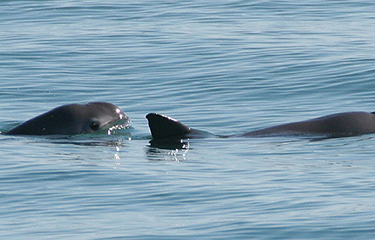A new survey published in Royal Society Open Science has dire news for the survival of the vaquita porpoise – a small porpoise that lives in an area of the Mexican coast in the Gulf of California.
Using passive acoustic survey devices – which detect the vaquita due to the species’ use of echolocating “clicks” – the report determined that fewer than 19 individual vaquitas remained as of autumn 2018. The acoustic surveys, which started in 2011, have shown a 99 percent decline in the detection rate of the animals.
The vaquita population has been affected by the use of gillnets in its habitat, a practice that was banned in 2017 as a last-ditch effort to save the species. Despite the ban, fishermen reportedly continue to use gillnets to poach the also-endangered totoaba – a fish valued for its swim bladder, which can fetch north of USD 20,000 (EUR 17,854) on the black market.
A U.S. court also caused the enaction of an import ban on all gillnet-caught seafood from Mexico, a ban that the courts have upheld after challenges by the administration of U.S. President Donald Trump.
"The ongoing presence of illegal gillnets despite the emergency ban continues to drive the vaquita towards extinction. Immediate management action is required if the species is to be saved," the report’s introduction states.
That management action may require the guarding of the remaining individuals, through a “permanent presence of enforcement in the middle of the vaquita distribution and the active removal of illegal gillnets from the area,” the report stated.
“In addition, providing access, training and support to develop legal alternatives for fishers requires a longer time frame but is critical for increasing compliance with the gillnet ban in local communities,” the report said.
Image courtesy of the National Oceanic and Atmospheric Administration (NOAA)







